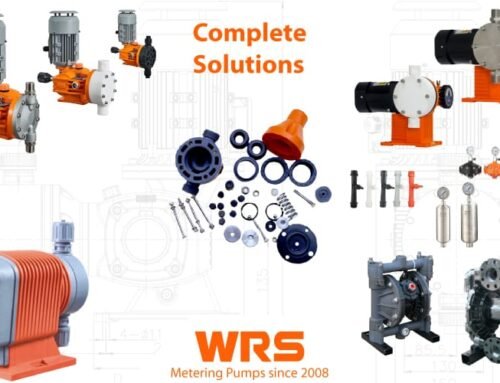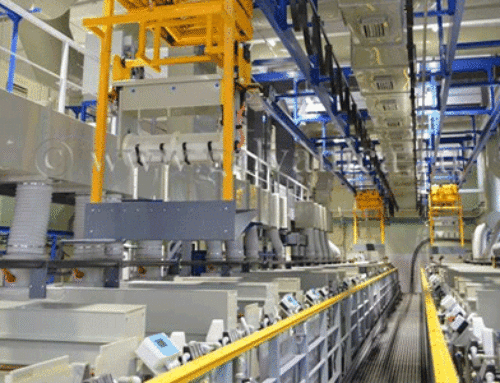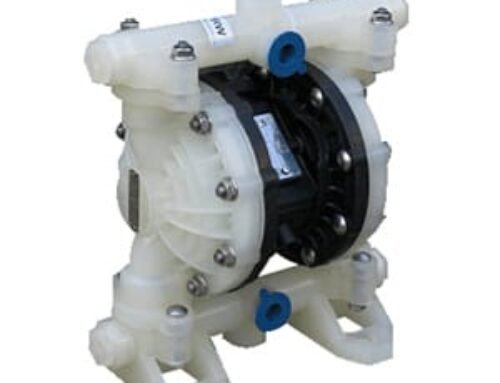Industries today need fluid handling systems that are precise, efficient, and durable. Solenoid pumps are a reliable solution, used in areas like water treatment, lab analysis, food processing, and chemical dosing. This article explains how solenoid pumps work, their benefits and drawbacks, and where they are most commonly used.
What Are Solenoid Pumps?
A solenoid pump is a type of positive-displacement pump. It utilizes the electromagnetic force generated by a solenoid coil to create a pumping action. Unlike centrifugal pumps that rely on rotation, solenoid pumps use linear motion. When electricity passes through the solenoid coil, it creates a magnetic field that causes a plunger or diaphragm to move forward. This motion displaces fluid and pushes it through the outlet. When the current stops, a spring or reverse force resets the plunger, drawing more liquid into the chamber.
This simple yet effective mechanism makes solenoid pumps highly efficient for dosing and metering applications where precise control is essential.
Key Features of Solenoid Pumps
Solenoid pumps stand out for several distinct features:
1. Precise Dosing and Metering
Because solenoid pumps operate with controlled strokes, they can deliver exact volumes of liquid repeatedly. This makes them ideal for applications requiring consistent and reliable dosing.
2. Compact Design
Their relatively small size allows solenoid pumps to be easily integrated into systems with limited space, such as laboratory instruments or compact treatment units.
3. Energy Efficiency
Since they only consume energy during each stroke and have no continuously rotating components, solenoid pumps are energy-efficient, contributing to lower operational costs.
4. Versatility in Fluids
These pumps can handle a wide range of fluids. They work with clean water, chemicals, acids, and even viscous solutions. The construction materials for their diaphragms and wetted parts determine compatibility.
5. Easy Automation
Modern solenoid pumps can be easily connected to electronic controls, making them suitable for integration with automated systems that require precise dosing schedules.
Applications of Solenoid Pumps
The adaptability of solenoid pumps makes them indispensable across many industries.
Water and Wastewater Treatment
In treatment plants, solenoid pumps are frequently used for chemical dosing, such as adding chlorine, sodium hypochlorite, or flocculants. Their precision ensures water safety and compliance with regulatory standards.
Food and Beverage Industry
Hygiene and accuracy are crucial in food production. Solenoid pumps are used to precisely dose flavorings, colorants, and preservatives, ensuring consistent product quality and consistency.
Pharmaceutical and Biotechnology
In laboratories and pharmaceutical manufacturing, solenoid pumps play an essential role in dosing active ingredients, reagents, or cleaning agents. Their compact design and high accuracy make them valuable tools in controlled environments.
Chemical Processing
The chemical industry relies on solenoid pumps for safely dosing aggressive substances, such as acids, alkalis, or solvents. Their design ensures that fluids are handled securely, minimizing the risk of leaks and contamination.
Agriculture and Fertigation
Farmers utilize solenoid pumps in irrigation systems for precise dosing of fertilizers and pesticides. Accurate delivery reduces waste and supports sustainable agricultural practices.
Advantages of Solenoid Pumps
Solenoid pumps offer numerous benefits that explain their wide adoption:
- High Accuracy: Their stroke-based operation provides consistent dosing with minimal variation.
- Low Maintenance: With few moving parts and a straightforward design, solenoid pumps require minimal maintenance compared to other pump types.
- Cost-Effective: Their energy efficiency and low maintenance needs contribute to reduced operational expenses.
- Safe Handling of Chemicals: Materials can be selected to resist corrosion, allowing for the safe pumping of aggressive fluids.
- Flexibility: Solenoid pumps are suitable for both small-scale laboratory use and large industrial operations.
Choosing the Right Solenoid Pump
When selecting a solenoid pump, several factors should be evaluated to ensure the best performance:
- Fluid Compatibility: Selecting the appropriate diaphragm and valve materials is crucial when handling aggressive or viscous fluids.
- Required Flow and Pressure: Match the pump’s specifications to the desired dosing range and operating pressure.
- Control Integration: Modern solenoid pumps often feature options for analog or digital control, facilitating easier integration into automated processes.
- Maintenance Considerations: Select a model with easy access to replacement parts, especially if the pump will be operating continuously.
The Future of Solenoid Pump Technology
New technology is changing solenoid pumps. Features like remote monitoring, self-calibration, and predictive maintenance are now common, making pumps more reliable and easier to automate. Better materials are also making pumps last longer and handle tougher fluids.
As sustainability becomes a priority across industries, solenoid pumps contribute by minimizing chemical waste and improving dosing efficiency. This environmentally friendly performance aligns with modern regulatory requirements and corporate sustainability goals.
WRS Solenoid Pump Solutions
WRS Dosing Pump offers two key models in this category:
- ML Series – Manual Control Solenoid Dosing Pump. Flow rate 1–20 LPH, pressure 10–1 bar, available in PVC, PVDF, SS304, or SS316. Flow rate is controlled manually, making it simple and reliable for straightforward dosing applications.
- MLS Series – Signal Control Solenoid Dosing Pump. Flow rate 1–20 LPH, pressure 10–1 bar, available in PVC, PVDF, SS304, or SS316. Flow rate can be controlled via pulse or 4–20mA signal, offering greater flexibility and integration with automated systems.
Both ML and MLS models are microprocessor-controlled solenoid diaphragm dosing pumps. The primary distinction lies in control: the MLS series supports external signal input, whereas the ML series offers manual control. These pumps are widely used in potable water treatment, cooling circuits, wastewater treatment, paper production, and the plastics manufacturing industry.
Solenoid pumps are compact, precise, and useful for many industries. They deliver accurate doses with little maintenance, making them valuable in fields from water treatment to pharmaceuticals. Although they are not suited for very high-flow or high-pressure jobs, their efficiency and ability to work with automation keep them important. As technology improves, solenoid pumps will become even smarter and more efficient.





Leave A Comment